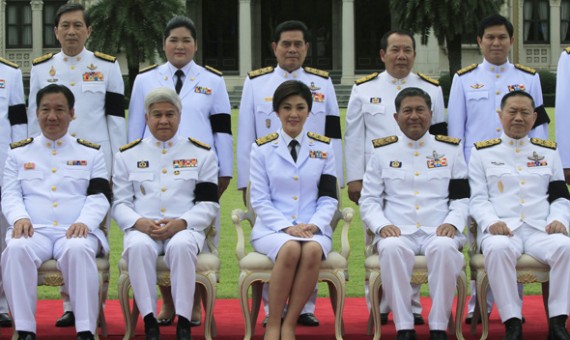Yingluck’s Appointees
More on:

New Thai Prime Minister Yingluck Shinawatra is not exactly getting off to a great start in asserting her independence from her brother, exiled former prime minister Thaksin Shinawatra. Thaksin was unfairly forced out of the country following the 2006 coup and further pressure on his allies. He is clearly the savviest politician in Thailand, but he also remains a lightning rod in the country whose continued influence over government, and possible return, are the main dangers that could cause renewed Bangkok street protests of the type that in 2006 helped spark a coup.
No one ever thought that Yingluck, whom Thaksin, nearly two decades older, treated almost like a daughter, would be completely independent. After all, Puea Thai advertised Yingluck in part as a symbol of Thaksin, which they knew would resonate with voters in the North and Northeast. The campaign featured slogans like “Thaksin thinks, Puea Thai acts.” Thaksin at one point famously claimed that Yingluck was his “clone.”
But Yingluck needs to demonstrate a degree of independence to foster reconciliation, and to assuage fears among the army, the palace, and Bangkok’s urban middle classes. Her new cabinet, however, contains primarily close Thaksin allies, some of whom seem to have been handpicked by the former prime minister. The new foreign minister is Thaksin’s cousin and has little experience; the new commerce minister is a longtime Thaksin ally; the new defense minister is another close Thaksin ally.
Some of these cabinet members do have international reputations and will be well-received in Thailand; certainly the new foreign minister could hardly be worse than the previous one, Kasit Piromya, whose over-the-top rhetoric and obsessive anti-Thaksin campaign distorted and embarrassed Thailand. And, to her credit, Yingluck steered clear of even more controversial appointments, such as naming cabinet ministers who hailed directly from the red shirt protest movement. But will the cabinet listen to Yingluck, or will the shots be called in Dubai and Brunei, where Thaksin has been spending growing amounts of time? For Yingluck, and for Thailand, the former is the only workable scenario.
More on:
 Online Store
Online Store
